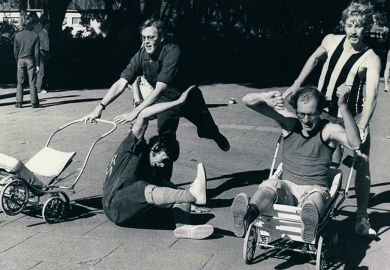Governance in Australian universities is the inverse of oversight in other industries, with insider experience the exception rather than the rule.
Research has found that almost 70 per cent of university council and senate members have no academic background. Instead, they have experience in areas such as mining, telecommunications and pharmaceuticals – sectors where more than 70 per cent of directors have pursued professional careers in the industries they now guide.
The analysis suggests that university councils have more in common with the governing bodies of community and arts organisations than with the corporate boards they emulate. Members inject plenty of belief, skill and dedication, but surprisingly little sectoral insight.
“If you are a shareholder in a listed company, you want the directors to know what they’re doing,” said Alessandro Pelizzon, a senior lecturer at Southern Cross University’s School of Law and Justice. “You prefer people with direct expertise in the field that they’re directing.
“Because we don’t have annual general meetings at universities, we have no way of guaranteeing that alignment. We don’t have a shareholder meeting that holds the board of directors accountable.”
Dr Pelizzon’s analysis, which has been accepted for publication by two journals, concluded that just 32 per cent of people in university governance bodies had academic experience.
More came from sectors such as banking, insurance, superannuation and accounting. Consultancy heavyweights KPMG, PricewaterhouseCoopers, Deloitte and Ernst and Young have produced many Australian university council members, as has financial services giant Macquarie Group.
Others have worked for mining companies such as Rio Tinto and telecommunications companies like Telstra. At least 72 per cent of the current directors of these two firms have prior experience in the sectors they now oversee, Dr Pelizzon found.
Australian university council members also include a chief winemaker, an archbishop, a former chief executive of cable television company Foxtel, the current chief executive and a former assistant director of Melbourne Zoo, and a co-founder of fast food outlet Donut King.
Dr Pelizzon said that of 564 current council members, just 185 – excluding vice-chancellors – had been elected from within their institutions. He said one in four university chancellors came from the mining industry. “It flies in the face of the sector’s claims to diversity.”
Adam Lucas, academic staff representative on the University of Wollongong’s governing body, said the dearth of council appointees with tertiary education experience would not be tolerated in any publicly listed corporation.
“Despite governments’ rhetoric about university accountability and responsiveness to community needs, no tertiary sector or local community experience or expertise is currently required of appointed members to universities’ governing bodies…as was once the case,” he wrote.
He said the proportion of elected council representatives in the governing body of his institution had halved in recent decades – a pattern replicated across the sector. “There does not appear to have been any time during the last five decades when Australian university staff and students held any significant decision-making power within their own institutions.”
POSTSCRIPT:
Print headline: No sector experience needed to sit on Australia’s university councils
Register to continue
Why register?
- Registration is free and only takes a moment
- Once registered, you can read 3 articles a month
- Sign up for our newsletter
Subscribe
Or subscribe for unlimited access to:
- Unlimited access to news, views, insights & reviews
- Digital editions
- Digital access to THE’s university and college rankings analysis
Already registered or a current subscriber? Login









